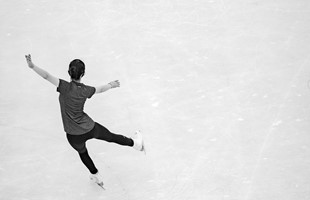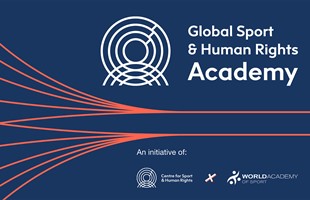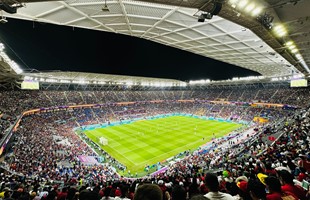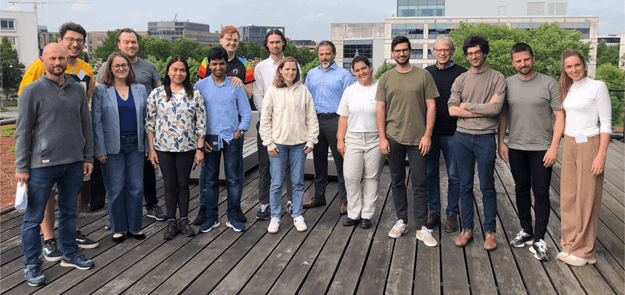
CSHR collaborates with Asser Institute & FIFPRO on 2nd edition of Sport & Human Rights Training Programme
Author - Henry Newton-Savage
The Centre for Sport and Human Rights (CSHR) and the T.M.C Asser Institute collaborated again this summer (27-30 June 2023) to deliver the second edition of their one-week training programme on sport and human rights, following the success of the inaugural programme in 2022. FIFPRO generously hosted the event at their headquarters in Hoofddorp, the Netherlands. Participants for the programme travelled from across the world, with representation from Australia, Chile, Europe, India, and the Philippines. For the participants gathered at the offices of an organisation at the forefront of advancing players’ rights, it was fitting that athletes’ rights was a prominent theme explored across the four days, among other themes within the sport and human rights frame.
The interdisciplinary training programme seeks to blend the academic research and theory with the practical experiences of those who work in the field, thereby fostering unique exchanges between the participants and the speakers. Through a mixture of presentations, lectures, workshops, interactive exercises and group discussions, the aim is to provide those interested or working in this field with the necessary toolkits, knowledge and networks.
For this year’s course, each of the four days had a different theme within the sport and human rights frame. The programme began with Antoine Duval and Daniela Heerdt of the Asser Institute introducing the core concepts underpinning the sport and human rights landscape. The two keynote talks were delivered by Magali Martowicz from the International Olympic Committee (IOC) who discussed IOC’s strategic framework on human rights and Giovanni di Cola from the ILO who spoke about the development of human rights in sport at the international institutional level and the concerns in relation to working conditions of professional athletes. The keynotes were followed by Sylvia Schenk from Transparency International, who talked about the concept of governance and related concepts such as integrity, human rights, the UN Guiding Principles for Business and Human Rights, and compliance and how these apply in the sporting context, with UEFA Euro 2024 in Germany as a case study.
Today the 2nd Summer School on #Sport & #HumanRights kicks off with @TMCAsser, hosted by @FIFPRO.
— Centre for Sport & Human Rights (@SportandRights) June 27, 2023
👋 Welcome to an international group with varied backgrounds - looking forward to 4 days of discussion with excellent guest faculty. pic.twitter.com/T2yMjMdjSX
Governance continued to be the focus for day two. A morning lecture from members of the CSHR team, William Rook and Shubham Jain gave an overview of the sport and human rights movement, its history, and recent developments in the field, including the establishment of CSHR. Daniela and Antoine then developed on the theme of human rights in practice by examining the current state of global governance in sport, considering how these structures have been historical barriers to the human rights cause, and what can be done to overcome these obstacles in the future. In the afternoon, Antoine chaired a conversation with Daniela and Kirsten Witte-Abe, from the German Olympic Sports Confederation (DOSB), who shared lessons from her experience of embedding human rights in the governance, practices and policies of the DOSB. Representatives from FIFA, Andreas Graf and Irene Carretero Sala, then delivered a workshop on the human rights issues in football. The workshop included a scenario exercise in which the participants discussed particular human rights issues associated with a mega football event, and brainstormed practical solutions that would mitigate negative human rights effects.
And Day 2 of the Summer School on #Sport & #HumanRights with @TMCAsser & hosted by @FIFPRO, is in the can! ✅
— Centre for Sport & Human Rights (@SportandRights) June 28, 2023
Organiser @DanielaHeerdt plus our colleagues William Rook & Shubham Jain introduced the Centre & discussed governance & embedding #HumanRights into sport policies pic.twitter.com/bDxUcODd3b
The theme for day three was athlete rights. In the morning session, Daniela chaired a Q&A with Maximilian Klein (Athleten Deutschland), and Yannick Kluch (University of Illinois), who shared their experiences of advocating for athletes’ rights in national organisations. Maximilian and Yannick answered a range of questions on topics that varied from the particular challenges faced by national athlete organisations, to the outlook for cross-national collaboration and international athlete representation. Participants then heard from Claudia Villa of Commonwealth Sport, who presented an overview of her responsibilities in her role as the Head of Safeguarding, and discussed her efforts to embed effective safeguarding practices within the organisation as well as during the Commonwealth Games. In the afternoon, FIFPRO’s Sarah Gregorius, Nienke van Gerven, and Alexandra Gomez Bruinewoud shared insights into how FIFPRO’s work helps professional football players to claim and enforce their human rights. Their reflections included a discussion on the history of FIFPRO, the struggle to have player rights recognised as labour rights, and a case study exercise in which the participants analysed real world examples of human rights abuses in football.
✅ Day 3 of the Summer School on #Sport & #HumanRights with @TMCAsser & hosted by @FIFPRO
— Centre for Sport & Human Rights (@SportandRights) June 29, 2023
Professional athletes & their rights were in the spotlight in today's sessions pic.twitter.com/aUPK9Zjnr8
The final day was focussed on gender and sports. While CSHR’s Thays Prado provided an overview of the gender and human rights issues in sport, IOC’s Madeleine Pape led a discussion on the participation and inclusion of transgender athletes in the Olympic movement. In the afternoon, FIFPRO’s Alex Culvin spoke about the recent FIFPRO initiatives and campaigns aimed at advancing gender equity in football. Patrick Bracher from Norton Rose Fulbright discussed the Caster Semenya case; how it went from the Court of Arbitration for Sport to the Swiss Federal Tribunal to the European Court of Human Rights, and the challenges of litigating against sport governing bodies in Europe.
Each day of the programme concluded with group reflections led by Antoine and Daniela where the participants discussed the important points raised by the speakers, interconnections between the various sessions along with insights and learnings from their own diverse backgrounds. We were delighted to witness the interactive and lively engagement between the speakers and the participants.
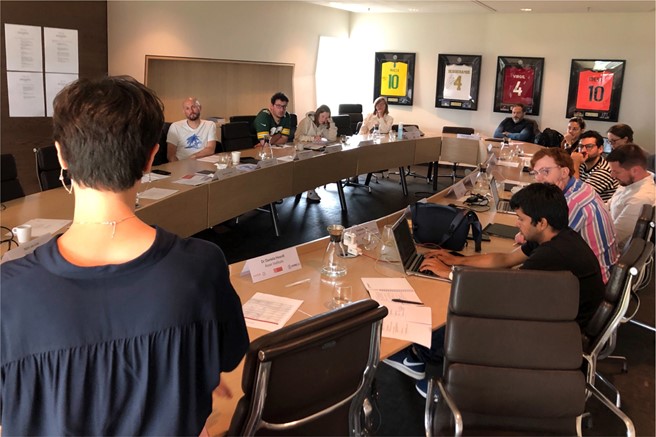
Among this year’s participants and speakers were human rights lawyers, policy professionals, law enforcement officials, player union representatives, academics and researchers, architects, player agents, former athletes, commercial lawyers, fan representatives, sport governing body and federation representatives, and civil society representatives from different parts of the world. This diversity of representation among participants and speakers reflects the ever-growing interest in the sport and human rights movement. Discussions on sport and human rights are increasingly becoming relevant for each stakeholder in the sport ecosystem. This is why training, education and capacity building are critical and an efficient way for spreading awareness about assessing, preventing and addressing human rights harms within the world of sport.
This second edition of the programme underscored the importance of a shared responsibility between all actors within the sport ecosystem in order to achieve the vision of ‘responsible sport’ (read, watch). The programme focused not only on the broader and specific sport and human rights issues, but also provided practical tools for the participants to drive change in and through their day-to-day work in this field. This summer’s programme has no doubt enhanced the participants’ understanding of sport and human rights. This is another step towards advancing the field through education, knowledge and capacity building and achieving a world in which powerful sports actors respect the human rights of the entire ecosystem’s stakeholders. The Centre will continue to support these and other initiatives, in line with our strategic priority to build capacity and share knowledge.
